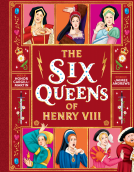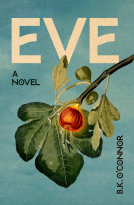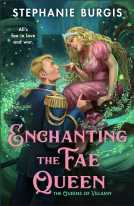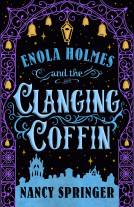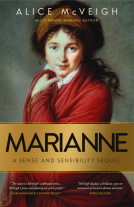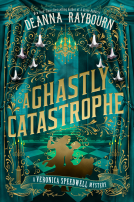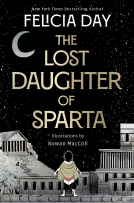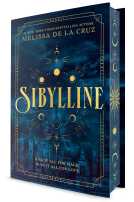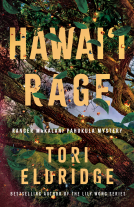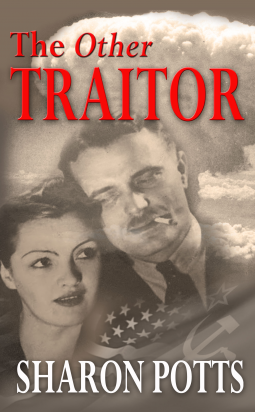
The Other Traitor
by Sharon Potts
This title was previously available on NetGalley and is now archived.
Send NetGalley books directly to your Kindle or Kindle app
1
To read on a Kindle or Kindle app, please add kindle@netgalley.com as an approved email address to receive files in your Amazon account. Click here for step-by-step instructions.
2
Also find your Kindle email address within your Amazon account, and enter it here.
Pub Date Apr 22 2016 | Archive Date Jul 29 2016
Description
It’s been over sixty years, but three people remain haunted by what he
did.
Was it treason…or something far worse?
Raised with shame and silence, Annette Revoir refuses to confront her terrible
legacy—her grandfather’s execution as an atomic bomb spy in the 1950s. But when
she finds an old family photo album that reveals a very different portrait of
her grandfather, her instincts as a journalist take over. Her inquiries put her
on a collision course with a young man and his grandmother, but Annette is
prepared to go to any lengths to prove her disgraced grandfather’s innocence.
Everything in Julian Sandman’s life is wrong—his unrewarding career at a big
drug company, his expensive Manhattan apartment, and his self-indulgent
girlfriend. The worst part of living a lie is the one he’s been telling
himself. Julian is ready to defy the demons of his family’s past… Perhaps he
should have first considered the cost.
Mariasha Lowe’s childhood growing up in Brooklyn during the Great Depression is
safely preserved in her strange metal sculptures. Today, people might say she
was ‘a red-diaper baby’ but they’d be mistaken about her brushes with
communism. And with Yitzy. Mariasha is ninety-five, but she’s never forgotten
him. Is it finally time to face her past so she can make a future for Annette
and Julian? Or will she take her secrets to the grave?
____________________________________________________________________
A Note From the Author...
A few years ago, I overheard someone remark, "I don't care about anything that happened before I was born. It doesn't affect me." I was taken aback. Doesn't affect her? But the past is everywhere and in everything. I believe that so strongly that it's been one of the main themes in my writing since my first suspense novel, In Their Blood, right through Someone's Watching and The Devil's Madonna, and continues in my upcoming psychological thrillers--Someone Must Die and The Other Traitor. Sometimes I create my characters' "pasts" from whole cloth, but more often they come from stories passed on to me from my family or events in my own life.
Someone Must Die uses the period of college unrest in the late sixties as its backdrop. (Not so coincidentally when I began college.) I remember the world changing dramatically shortly after I graduated from high school, in the summer of 1969. That July, I left for a month-long trip to Europe with my parents and remember watching Americans walk on the moon on a TV in a Hamburg hotel lobby. When I returned home at the end of August, my friends were different somehow--and I experienced a Rip-Van-Winkle moment. What the heck's happened to everyone? Woodstock had happened. Neat, pretty dresses and heels had been replaced by torn jeans and clogs, hair was longer, the music more important, and I didn't want to be left behind. For the under-twenty crowd, there was a heady sense of taking back the world and making it our own. I felt drugged, and not just because of the marijuana smoke that permeated the hallways of Queens College, but by the sense that my generation finally had some control over its own destiny. Sadly--the pushback against 'radical' students and events like the Kent State massacre flipped that feeling around a hundred and eighty degrees, and spiritedness faded to disillusionment.
In Someone Must Die, I hoped to capture both the headiness and the disenchantment of that period. But I also wanted to take it a step further and examine how being a part of those times may have shaped at least a few of the people who had lived through them. And, because I very much believe that who we were before we became parents influences how we raise our children, my story evolved into Aubrey Lynd's story. Aubrey is a young woman who, hit hard by the disappearance of her six-year-old nephew, investigates motives for his kidnapping, including the possibility that something in her parents' well-hidden past may have triggered it. As she digs into her parents' secrets and tries to unravel their deceptions, she learns not only who her parents are as human beings, but why they made the choices they did. And more important, Aubrey begins to understand herself and why her own choices, molded by the past, are inevitable.
The Other Traitor goes back even further--this time to a past belonging to my parents. When I was a child, I had been mesmerized by the stories my mother told me about her growing up during the Great Depression in Brooklyn. How her father died when she was seven, and how her mother, penniless and illiterate, went to extraordinary measures to survive with three small children (my mom was the oldest!) Despite the adversity in her life, my mother went on to graduate from college and lived a happy and rewarding life, but her memories of being a 'red-diaper baby', influenced by socialism and later communism, often seemed to take her to another place. The mention of Julius and Ethel Rosenberg, who had been executed as atomic-bomb spies in 1953 would bring tears to my mother's eyes. The Rosenbergs were a young married couple with two small children. They had lived in the same Lower East Side neighborhood as my family and my oldest brother had gone to elementary school with one of their sons. Had they deserved to die? It was a question that haunted me.
The idea to merge my mother's early years with the story of the execution of an atomic-bomb spy seemed inevitable. But I distanced myself by telling the story through the eyes of Annette Revoir, a French-American journalist. Annette is determined to prove the innocence of her grandfather, who she believes was wrongfully executed as an atomic-bomb spy in the 1950s. Annette's quest for the truth takes her to the Lower East Side of Manhattan where she meets Mariasha Lowe, a former friend of her disgraced grandfather, and Mariasha's grandson, Julian Sandman. The old woman reminisces about a youth inflamed by love and revolutionary ideals, but holds onto her deepest secrets until Annette and Julian finally pry them out, never imagining the impact her revelations will have on all their lives.
Yes, my stories are fiction. So why am I going on and on about the past? Because I believe that fiction can hold a deeper truth--about love, choices, and most important, how our past shapes who we really are.
I hope you find my stories rewarding. That they make you think, and question, and wonder. And maybe even remember what it is in your past that's made you who you are.
Available Editions
| EDITION | Paperback |
| ISBN | 9780692690598 |
| PRICE | $10.99 (USD) |
Average rating from 8 members
Featured Reviews
An amazing read! You could easily see this being a true story if you didn't already know it was fiction. So hard to put down, it almost made me late for work. Well written with very believable characters!! I look forward to searching out more books by Ms. Potts.
Readers who liked this book also liked:
Vicky Osterweil
Business, Leadership, Finance, Nonfiction (Adult), Politics & Current Affairs
Melissa de la Cruz
Romance, Sci Fi & Fantasy, Teens & YA


